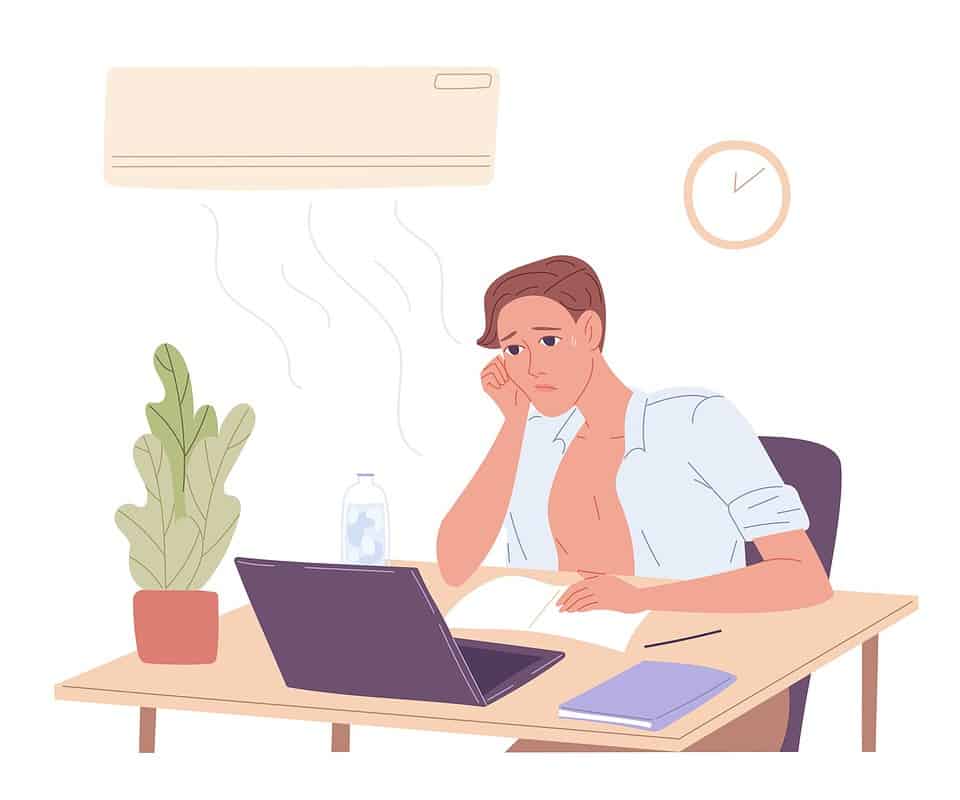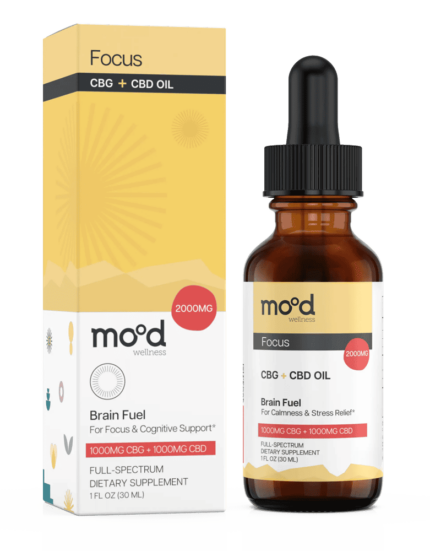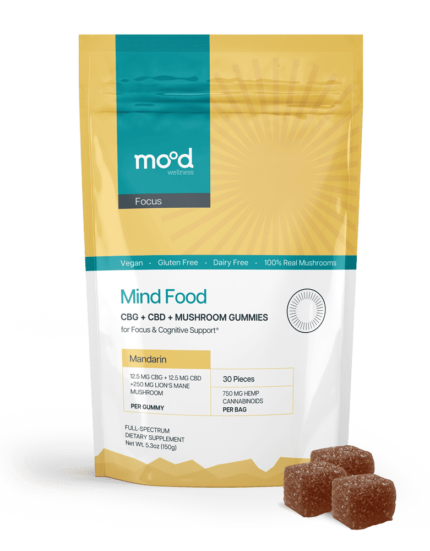Imagine living in a world where your mind is constantly buzzing,
where focus is elusive, and where organization feels like an uphill battle.
This is the reality for many adults living with untreated Attention-Deficit/Hyperactivity Disorder (ADHD).
Often misunderstood and misdiagnosed, ADHD is not just a childhood condition. It’s a lifelong struggle that can significantly impact an individual’s quality of life if left unaddressed.
This comprehensive guide aims to shed light on the symptoms, consequences, and treatment options for untreated ADHD in adults,
empowering you with knowledge and understanding.
What is ADHD in Adults?
Attention-Deficit/Hyperactivity Disorder, commonly known as ADHD, is a complex mental health disorder that extends beyond the realm of childhood.
It’s a lifelong condition that persists into adulthood, often misunderstood and misdiagnosed due to its diverse range of symptoms.
ADHD in adults is characterized by a persistent pattern of inattention, hyperactivity, and impulsivity.
However, it’s not just about being easily distracted or restless. The condition can significantly impact an individual’s ability to manage time, stay organized, set and achieve goals, and maintain stable employment.
Moreover, the effects of ADHD aren’t limited to these areas. The condition can also create challenges in personal relationships, often leading to misunderstandings and frustrations. It can affect an individual’s self-esteem, making them feel misunderstood or inadequate.
In some cases, adults with ADHD may also struggle with addiction, turning to substances as a coping mechanism for their symptoms.
According to the National Institute of Mental Health, ADHD is a developmental disorder that begins in childhood.
While the symptoms may evolve and manifest differently as the individual grows, they continue to persist and can significantly interfere with daily activities and relationships.
Understanding ADHD in adults is crucial because it’s not just a phase or a result of being disorganized.
It’s a real, valid mental health condition that requires understanding, treatment, and support.
ADHD: A Global Perspective
Attention-Deficit/Hyperactivity Disorder (ADHD) is not confined to any specific region or group; it’s a global concern impacting millions of adults across the world. According to a study published by the National Center for Biotechnology Information, it’s estimated that approximately 2.58% of adults globally meet the criteria for persistent ADHD. This translates to about 139.84 million individuals grappling with the challenges of ADHD every day.
Moreover, the prevalence of symptomatic adult ADHD is even higher, standing at 6.76%, which equates to around 366.33 million affected adults globally in 2020. These figures underscore the widespread nature of ADHD and highlight the critical need for comprehensive understanding, effective treatment strategies, and robust support systems for those affected by this condition worldwide.
The Symptoms of ADHD in Adults
Adults with untreated ADHD may experience a variety of symptoms, including:
-
- Difficulty multitasking: Struggling to manage multiple tasks at once.
-
- Distractibility: Finding it hard to focus due to easily being drawn to unimportant or irrelevant stimuli.
-
- Forgetfulness: Regularly forgetting appointments, obligations, and deadlines.
-
- Impulsiveness: Making hasty actions that occur in the moment without first thinking about them.
-
- Low frustration tolerance: Getting upset or frustrated easily.
-
- Mood swings: Rapid and extreme changes in mood.
-
- Poor listening skills: Difficulty paying attention during conversations.
-
- Poor planning: Struggling with organizing tasks and activities.
-
- Poor time management: Often running late or underestimating the time required for tasks.
-
- Problems staying on task: Difficulty maintaining focus on tasks, particularly if they are time-consuming or tedious.
-
- Restlessness: Feeling agitated or unable to sit still.
These symptoms can be disruptive and create significant challenges in many aspects of an adult’s life, including work, relationships, and self-esteem.

The Consequences of Untreated ADHD in Adults
Untreated ADHD in adults can lead to significant issues in various aspects of life:
| Consequences | Description |
| Mental Health | ADHD can contribute to several problems, including anxiety, depression, low self-esteem, and mood instability. It can also lead to addictive behaviors. |
| Work and Financial Difficulties | Adults with untreated ADHD often struggle with organizing tasks, managing time, and meeting deadlines. This can lead to job loss and financial stress. |
| Relationship Problems | The symptoms of ADHD can lead to misunderstandings, frustrations, and resentments in relationships. |
| Health Problems | ADHD can lead to unhealthy lifestyle choices, neglect of personal health, stress, and more. |
Debunking Myths: Understanding the True Nature of ADHD
There are many misconceptions and myths surrounding ADHD, especially when it comes to adults. Some of the most common myths include:
-
- ADHD is a childhood condition: While ADHD often begins in childhood, many individuals continue to experience symptoms into adulthood.
-
- Adults with ADHD are just lazy: ADHD is a neurodevelopmental disorder, not a character flaw. Individuals with ADHD often work twice as hard to stay organized and focused.
-
- ADHD is the result of poor parenting or bad behavior: ADHD is a biological condition. While environment can exacerbate symptoms, it is not the cause of the disorder.
-
- People with ADHD should try harder: Telling someone with ADHD to try harder is like telling someone with nearsightedness to see better. ADHD affects the executive functions of the brain, making it difficult to plan, focus, and execute tasks.
It’s crucial to debunk these myths and spread awareness about the true nature of ADHD to foster understanding and empathy for those living with this condition.
Preparing for Diagnosis: What to Consider Before Seeking Help
Before embarking on the journey to an ADHD diagnosis, it’s crucial to prepare yourself for the process.
Here’s what you need to know:
-
- Self-Reflection: Begin by reflecting on your symptoms and their impact on your daily life. Do you often find yourself distracted, impulsive, or hyperactive? Do these symptoms cause significant issues in your work, relationships, or other areas of life?
-
- Symptom Duration: ADHD symptoms start early in life, before age 12, and continue into adulthood.
Have you experienced these symptoms since childhood?
- Symptom Duration: ADHD symptoms start early in life, before age 12, and continue into adulthood.
-
- Multiple Settings: ADHD symptoms persist in multiple settings, such as at home, work, or social situations.
Do your symptoms occur in various aspects of your life?
- Multiple Settings: ADHD symptoms persist in multiple settings, such as at home, work, or social situations.
-
- Impact on Functioning: Consider whether your symptoms have negatively affected your academic, social, and/or occupational functioning.
-
- Health History: Prepare a comprehensive health history, including any mental or physical health conditions you have, medications you’re taking, and any family history of ADHD or other mental health disorders.
Remember, only trained healthcare providers can diagnose or treat ADHD.
If you suspect you or a loved one may have ADHD, it’s crucial to seek professional help.
Unveiling ADHD: The Process of Diagnosis in Adults
Diagnosing ADHD in adults is a meticulous process that requires a comprehensive evaluation by a trained healthcare provider.
The signs and symptoms of ADHD in adults can be hard to spot, as they often overlap with other conditions and everyday stresses.
However, core symptoms start early in life — before age 12 — and continue into adulthood, creating major problems.
The diagnosis of ADHD is determined by the clinician based on the number and severity of symptoms, the duration of symptoms, and the degree to which these symptoms cause impairment in various areas of life, such as home, school or work; with friends or relatives; or in other activities.
Adults who are diagnosed with ADHD experienced several symptoms of ADHD before the age of 12. As adults, they currently experience at least five persistent symptoms of inattention and/or five persistent symptoms of hyperactivity-impulsivity.
Evaluation of adults presenting with ADHD symptoms typically requires at least two visits. This allows for a thorough evaluation and gives the clinician the opportunity to assess the individual’s motivation and commitment to the treatment process.
Navigating ADHD: Treatment Options for Adults
Treatment for ADHD typically involves a combination of medication, psychotherapy, education, and skills training.
Here are some common treatment options:
-
- Medication: Stimulant and non-stimulant medications can help increase attention and focus, reduce impulsivity and hyperactivity, and improve related symptoms like depression and anxiety.
-
- Psychotherapy: Cognitive-behavioral therapy can help an adult with ADHD learn to manage the symptoms.
-
- Education and Training: Adults with ADHD can learn practical skills to help with time management, organization, and planning.
-
- Lifestyle Changes: Regular exercise, a healthy diet, adequate sleep, and reduction of caffeine and sugar can also help manage symptoms.
-
- Supportive Resources: While not a replacement for medical treatment, supportive resources can play a crucial role in managing ADHD symptoms. This can include self-help books, support groups, and wellness practices like mindfulness and yoga.
In the journey of managing ADHD, it’s important to remember that everyone’s path is unique. What works for one person may not work for another.
It’s crucial to work with a healthcare provider to develop a personalized treatment plan that fits your individual needs.

Embracing Natural Support: A Holistic Approach to ADHD
In line with our philosophy of “plants before pills,” we at MoodWellness believe in the power of natural solutions to support overall well-being.
Our Focus Support supplements are designed to complement a balanced lifestyle and provide additional support for your mental well-being.
While these supplements are not intended to replace medical treatment, they can serve as a natural component of a holistic wellness plan.
Conclusion: Living and Thriving with ADHD
Living with untreated ADHD can be challenging, but understanding the condition and seeking appropriate treatment can lead to significant improvements in daily functioning and quality of life. If you suspect you or a loved one has ADHD, seek professional help to get a diagnosis and explore treatment options. Remember, it’s never too late to seek help for ADHD. With the right treatment and support, you can manage the symptoms and lead a successful and fulfilling life.
Remember, managing ADHD is a journey, not a destination.
It’s about finding strategies and resources that help you live a fulfilling and productive life. Whether you’re newly diagnosed or have been living with ADHD for years, there’s always more to learn and new strategies to try. So keep exploring, keep learning, and keep striving for your best life.
FAQ's
ADHD in adults is a mental health disorder characterized by persistent problems such as difficulty paying attention, hyperactivity, and impulsive behavior. It can significantly interfere with an individual’s daily activities and relationships.
ADHD begins in childhood and can continue into the teen years and adulthood. While symptoms may change and evolve with age, they do not start in adulthood.
Symptoms of untreated ADHD in adults can include difficulty multitasking, distractibility, forgetfulness, impulsiveness, low frustration tolerance, mood swings, poor listening skills, poor planning, poor time management, problems staying on task, and restlessness.
Untreated ADHD in adults can lead to significant issues in various aspects of life, including mental health problems, work and financial difficulties, relationship problems, and health problems.
Treatment for ADHD typically involves a combination of medication, psychotherapy, education, and skills training. Lifestyle changes and supportive resources can also play a crucial role in managing ADHD symptoms.






